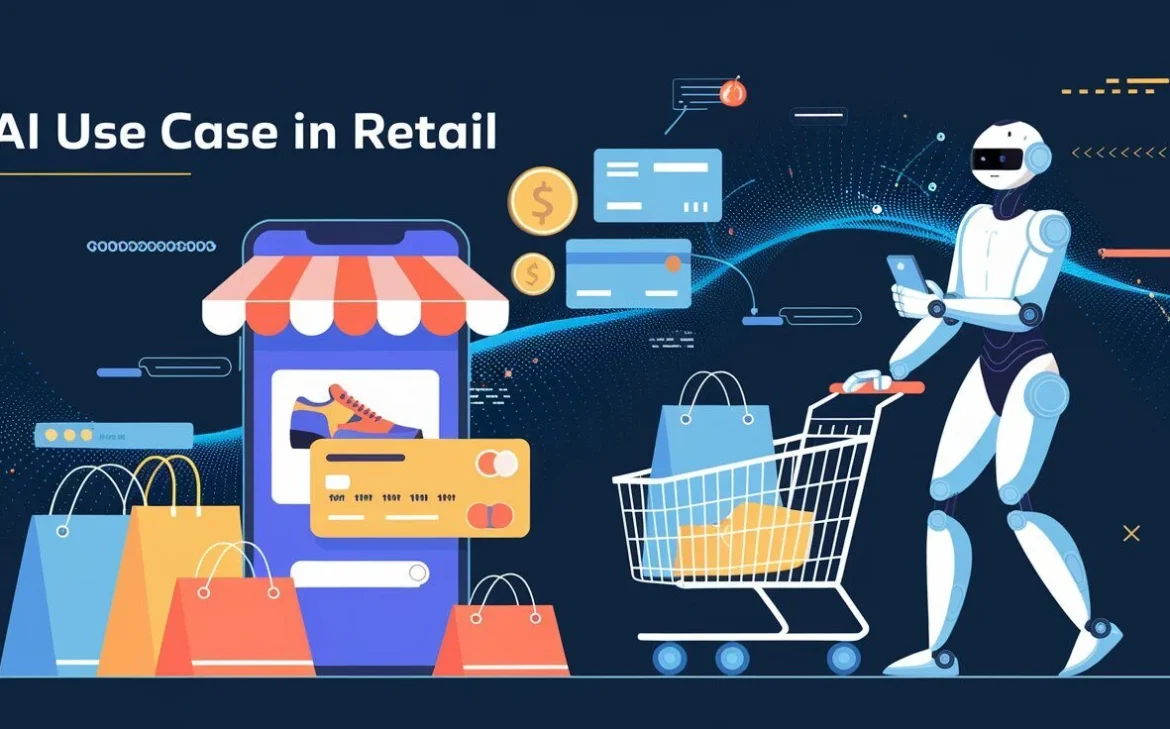Artificial Intelligence (AI) is revolutionizing the retail industry, creating smarter, faster, and more personalized shopping experiences. As AI technologies become more integrated into retail operations, businesses are discovering new ways to enhance customer satisfaction, optimize inventory, and drive sales.
How Is AI Used in Retail?
AI in retail involves using data-driven algorithms and machine learning models to automate processes, analyze customer behavior, and personalize the buyer journey. From product recommendations to automated checkouts, AI is transforming every aspect of the retail landscape.
Key Roles of AI in Retail
Personalized Shopping Experiences
AI enables retailers to analyze browsing patterns, purchase history, and user preferences to deliver tailored product recommendations. Whether online or in-store, shoppers receive more relevant suggestions, increasing satisfaction and conversion rates.
Inventory Management and Forecasting
AI helps retailers predict demand trends and manage stock levels more efficiently. By analyzing historical data, seasonal trends, and external factors, AI systems can reduce overstocking or understocking, improving profitability and minimizing waste.
Chatbots and Virtual Assistants
AI-powered chatbots enhance customer service by providing 24/7 assistance, answering product queries, and guiding users through their shopping journey. This improves user engagement and reduces pressure on human customer support teams.
Visual Search and Recognition
AI allows customers to search for products using images instead of text. By recognizing patterns and features in photos, visual search tools make it easier for shoppers to find exactly what they’re looking for—especially in fashion and home décor.
Fraud Detection and Security
AI systems monitor transactions in real time to detect unusual behavior or fraudulent activity. By learning from past data, AI improves security measures and safeguards both retailers and customers from digital threats.
Pricing and Promotion Optimization
Dynamic pricing engines use AI to adjust product prices based on market demand, competitor activity, and inventory status. This ensures competitive pricing and maximizes revenue without compromising customer satisfaction.
In-Store Automation
AI technologies like smart shelves, cashier-less checkouts, and customer tracking sensors enhance the in-store experience. Retailers can analyze foot traffic and optimize store layouts, product placements, and promotional displays accordingly.
Challenges to Consider
While AI is transforming retail, it also brings challenges:
- Data Privacy: Collecting and processing customer data requires strict adherence to data protection regulations.
- Implementation Costs: Advanced AI solutions can be expensive to develop and integrate, especially for small businesses.
- Job Displacement Concerns: Automation may impact certain retail job roles, requiring workforce reskilling and adaptation.
Conclusion
AI is redefining the future of retail by making operations more efficient, customer experiences more personalized, and business decisions more data-driven. As technology continues to evolve, retailers must embrace AI responsibly—balancing innovation with ethical practices and a strong focus on customer trust.







Leave feedback about this